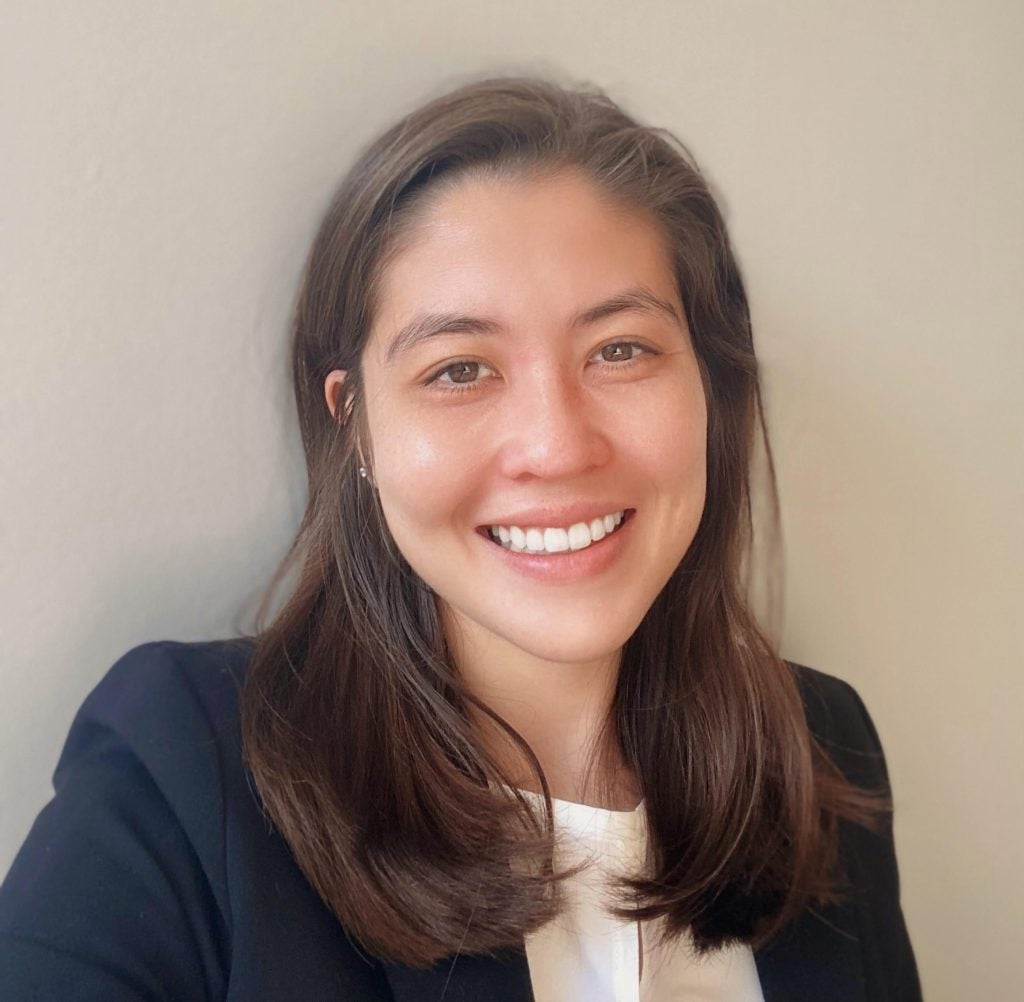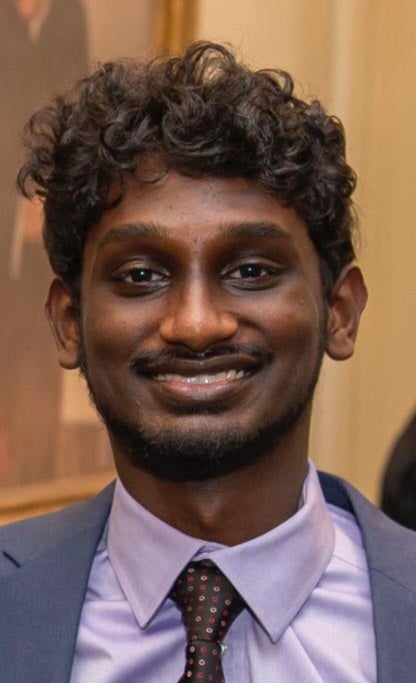“Tangible Impact”: Master of Science Graduates Share Their Post-Graduation Plans and Insights from Graduate School
Meet Aika Wojt and Matthew Gnanadass: two graduating Master of Science students in interdisciplinary programs at the Graduate School from the class of 2023. In this Q&A, they reflect on their post-graduation plans and personal insights from their time on the Hilltop and share their advice to incoming graduate students.
Aika Wojt (G’23)
Master of Science in Epidemiology

Q. How has your experience in the Epidemiology program prepared you for your future career?
A. The Epidemiology program places significant emphasis on concrete analysis, which has proven to be helpful in both finding employment and providing a strong foundation for any future career or education I wish to pursue. Before the program I had zero coding experience and an almost non-existent background in statistics. Now I’m quite comfortable with both of these things.
Q. How has your graduate education impacted your personal and professional growth?
A. The faculty have been enormously helpful and supportive, but they can’t give you suggestions or contacts if you don’t know what you’re asking for! My experience in a master’s program was much less rigidly structured than my undergraduate experience. My biggest hurdles were learning what to say yes to, what activities to prioritize and how to be strategic about my decisions. You also need to have a lot of initiative because there’s plenty of opportunities out there, but you need to be active about seeking them out.
Q. What accomplishments are you most proud of during your time at Georgetown?
A. Personally, the thesis process was my biggest challenge, and I am proud of actually completing it. There were so many hiccups during the process that I doubted it would ever be done. Despite that doubt, I sit here having presented it with only a few minor edits remaining, so it is clearly possible!
“My advice would be to start looking to get involved early, but be patient about finding things […] that fit your academic and professional interests.”
– Aika Wojt (G’23)
Q. What advice would you give to incoming graduate students?
A. My advice would be to start looking to get involved early, but be patient about finding things. The process of finding a job, volunteer organization or clubs might take a while, but there are so many out there you are sure to find something that fits your academic and professional interests.
Q. What are your plans after graduation?
A. My immediate plan is to work at the National Cancer Institute as a research analyst. I’ll likely do this for a few years and use this time as an opportunity to explore other interests. I’ve toyed around with the idea of learning Spanish and photography, and it’d be great to finally have time to do these things! Afterwards, I will likely go on to a Ph.D. or M.D. program.
Matthew Gnanadass (G’23)
Master of Science in Data Science & Analytics

Q. How has your experience in the Data Science and Analytics program prepared you for your future career?
A. My experience in the Data Science and Analytics program has provided me with a solid foundation in the fundamental skills and knowledge necessary for a career in data analysis. In addition, it’s allowed me to work with various data analysis tools, such as Python, R, SQL and Tableau, and to practice using them on real-world data sets. This exposure to practical data analysis applications and tools has given me a wide skill set as I look forward to a career in this field.
Q. What challenges did you face during your graduate studies, and how did you overcome them?
A. One of the significant challenges I faced during my graduate studies was finding and working with data. However, this allowed me to develop my data munging skills, which are essential in data science. The experience of working through data challenges during my graduate studies helped me to become more confident in my ability to manage data and has prepared me well for the challenges I will face in the real world.
The projects I am most proud of include building a web app to identify news articles, creating a checkers bot and analyzing pedestrian safety data. They allowed me to apply the skills and knowledge I gained in the program to real-world problems and see the tangible impact of my work.
Q. How has your graduate education impacted your personal and professional growth?
A. Overall, my graduate education has significantly impacted my personal and professional growth. The program has equipped me with the technical skills and theoretical knowledge necessary to succeed in data science. Additionally, it has allowed me to work collaboratively with other students and faculty members, which has enhanced my interpersonal and communication skills. The relationships and network I have built here directly helped me get a job as a Personalization Analyst at Total Wine.
“The projects I am most proud of include building a web app to identify news articles, creating a checkers bot and analyzing pedestrian safety data. They allowed me to apply the skills and knowledge I have gained in the program to real-world problems and see the tangible impact of my work.”
– Matthew Gnanadass (G’23)
Q. What are your plans after graduation?
A. In my new role at Total Wine, I plan to use statistics and data analysis to optimize their deal targeting system. I am excited to apply the skills and knowledge I’ve gained during my graduate studies to solve real-world problems and make a meaningful impact in my future career.
Q. What advice would you give to incoming graduate students?
A. Be patient and persistent when learning new skills and working through challenging problems. It is essential to take the time to truly understand the tools and concepts being taught and to work through issues independently before seeking help from others. Additionally, taking advantage of the opportunities to work collaboratively with others in the program is crucial, as this can enhance both personal and professional growth.
